16 May 2024
The largest of the Greek islands, Crete is a place with a rich history and mythology alike. Visiting Crete is a journey back in time, the birthplace of Minoan civilisation and the mythical cradle of the Olympian gods. This makes Crete an unmatched destination for visitors.
Crete’s diverse landscapes, from soaring White Mountains to Mediterranean azure waters, bear witness to its geological and cultural significance. The ancient ruins of Knossos are part of Crete’s past, interwoven into every fabric of the island, just like small fishing ports scattered along its coastline.
Why Visit Crete?
The mythological background, picturesque landscapes, and authentic life at Greece make this island worth seeing. No other place in the world comes close to what it offers regarding historical and cultural significance—it allows one to retrace the footsteps of old gods and heroes.
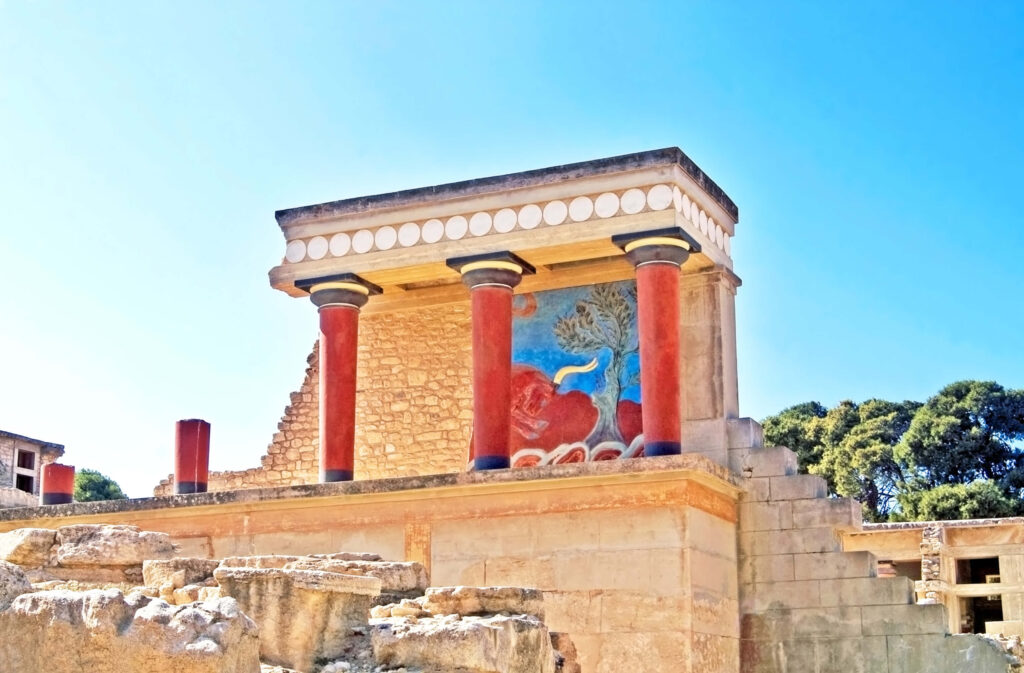
Historical Significance
Crete, the largest Greek island, has great historical value. From relics left behind by ancient civilisations to modern creations on its soil, there is little disagreement about Crete’s historical relevance.
This is evident through archaeological sites and museums on this island. The Palace at Knossos represents one such piece that tells us a lot about this civilisation’s intelligence and sophistication. One can explore its complex layout, impressive architectural advances, or vibrant wall frescoes here.
Apart from Knossos, other ancient cities, such as Phaistos or Gortyna, also reveal more insights into Crete’s history. Phaistos, with its ruins still standing upright, along with the enigmatic Phaistos Disc, provides some information concerning periods before Hellenic times. On the other hand, Gortyna reveals how Roman culture was incorporated through preservations such as remarkable remains from the Roman era and the Gortyn Code (one of the world’s earliest set of laws) that is displayed.
Visiting Crete helps visitors understand that its history stretches beyond the ancient sites and encompasses a wealth of cultural heritage that shapes the island today. The various museums on the Island, such as the Heraklion Archeological Museum and the Historical Museum of Crete, contain amazing collections that depict how Cretan culture evolved.
Visit Crete. Its historical significance, together with its beautiful natural scenery and vibrant local culture, makes it an essential destination for anyone who wants to taste the heart of Greece.
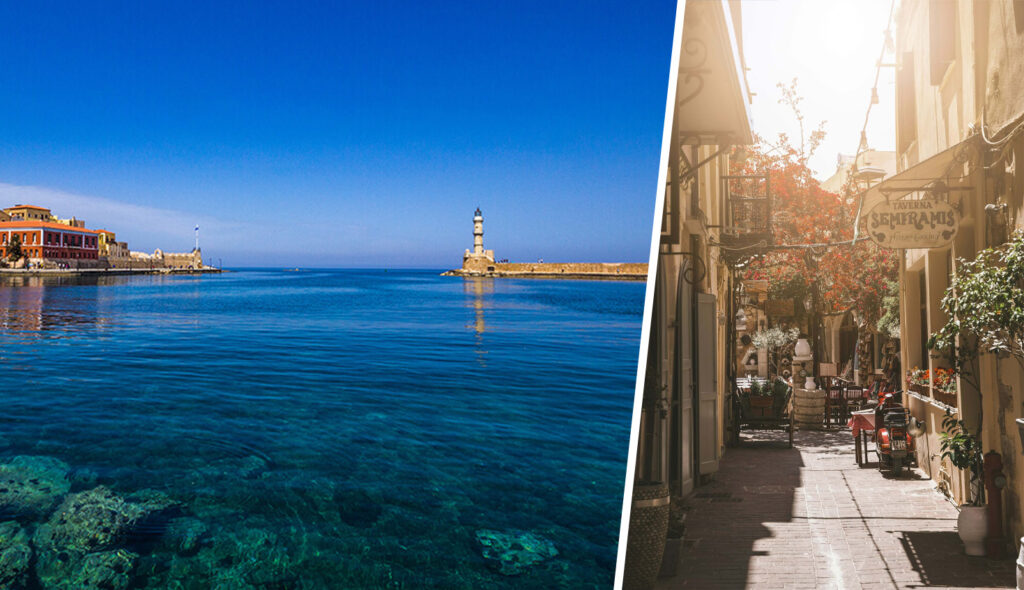
Beautiful Neighbourhoods
Visit Crete, the largest Greek island, for its diverse neighbourhoods are interwoven into a rich tapestry that is a part of its identity. From vibrant cities like Chania and Rethymno to small picturesque villages scattered all over this landmass, they represent the cultural endurance and natural beauty for which this Island is known.
With its Venetian-style harbour and narrow winding streets, Chania gives a glimpse into Crete’s past. Its old town is like a labyrinth with charming alleys lined with traditional shops, taverns and historical buildings taking you back in time. On the other hand, Rethymno boasts an intact Venetian–Ottoman old town complete with a magnificent fortress and bustling waterfront promenade.
Visiting Crete villages offers a peaceful break from the hustle and bustle of daily life. They are beautiful places set in severe landscapes of the island, which preserve local traditions, artisanship and local food. Visitors can learn about the rhythm of daily life by exploring narrow streets, visiting the local markets, and connecting with the warm Cretan people.
Whether you want to be in an urban area full of activity or a quiet countryside without noise pollution, visit Crete, which has everything for every traveller. Travelling through the charming towns, living cities and idyllic villages of Crete can reveal the true essence of a Greek island.
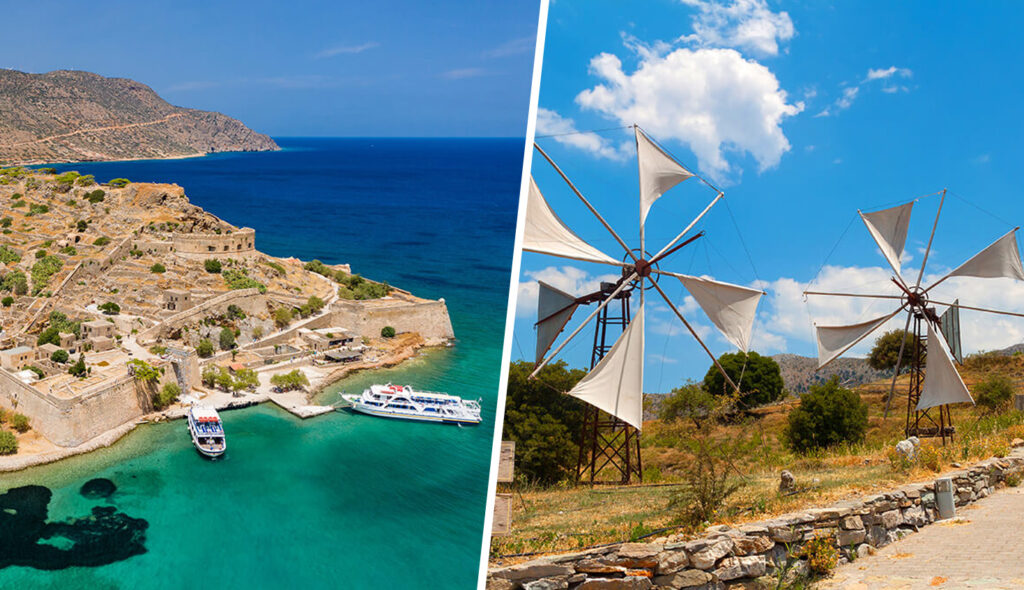
Natural Beauty
Crete is a nature lover’s paradise among all Greek islands. It features stunning coastlines, rocky mountainsides, and untouched wilderness that will leave you speechless. If you are looking to sunbathe on pristine beaches, hike on difficult trails, or just escape the world around you, then visit Crete, for it offers something for everyone.
Samaria Gorge is one of the most famous natural attractions on Crete Island. It runs through the White Mountains and is over 16 kilometres long. While walking in this dramatic landscape, one would get lost between the high cliffs surrounding it from both sides and occasional wildlife sights. Besides, there exist no other comparable beach locations in Greece. Balos Lagoon and Falassarna have clear waters with fine, picturesque sand.
However, the inland areas of Crete are just as fascinating as its coastal ones. For instance, the Lefka Ori (White Mountains) rugged mountains provide ideal opportunities for hiking trips or exploring these serene wildernesses. Some must-visit Crete places include Samaria National Park, one of several national parks in this country. It exhibits diverse plant and animal species, making it an attractive site for ecotourism lovers.
At any rate, whether you want excitement, relaxation, or simply an authentic experience with nature, visiting Crete for its stunning landscapes, awe-inspiring shores, and peaceful wilderness will leave you with a unique experience.
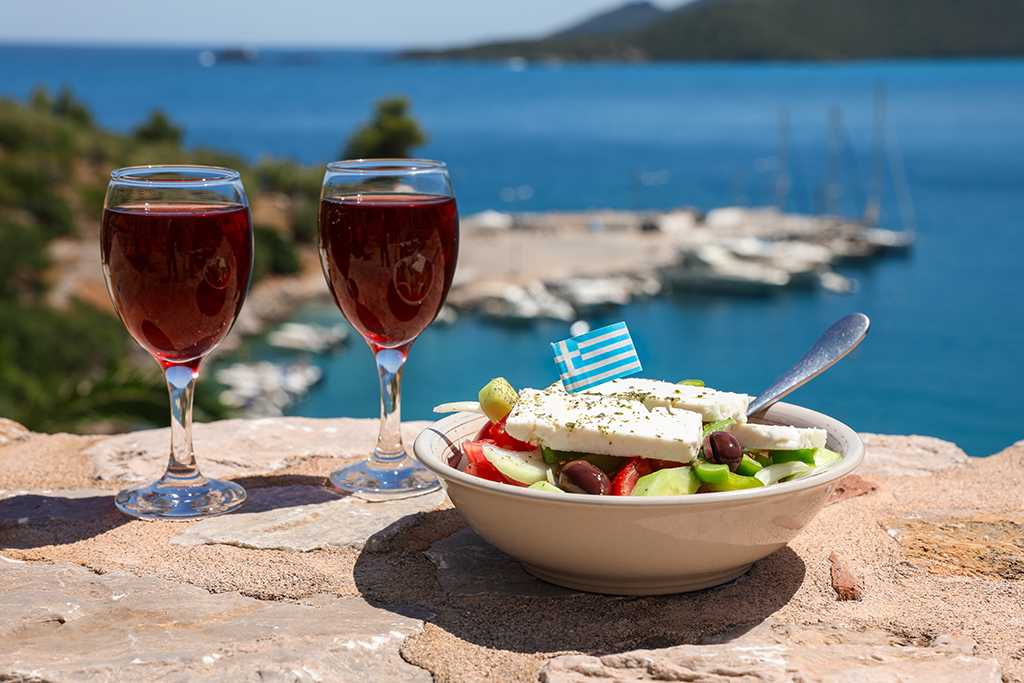
Culinary Delights
Indeed, Crete is the largest of the Greek Islands, and its cuisine epitomises a fusion of Mediterranean bounty and centuries-old recipes. This place boasts olive oil and herbs, as well as cheese and seafood, which are considered to be Cretan food delicacies.
The distinguishing feature of Cretan cooking is the use of seasonal ingredients in their vicinity. These include world-famous dishes like Moussaka, filling stews, Dakos, dry bread with tomato on top (or Bruschetta), and Paximadia. In addition, they go well with Raki, a strong spirit flavoured with aniseed, which is well known throughout this region if one wants to experience authentic Cretan cuisine.
Whether one walks through bazaars, dines at seaside tavernas or enjoys homemade food at local houses, one will never forget such an incredible journey through Crete’s culinary history. Discover why visiting Crete is a must for food enthusiasts seeking to immerse themselves in the flavours of the Mediterranean.
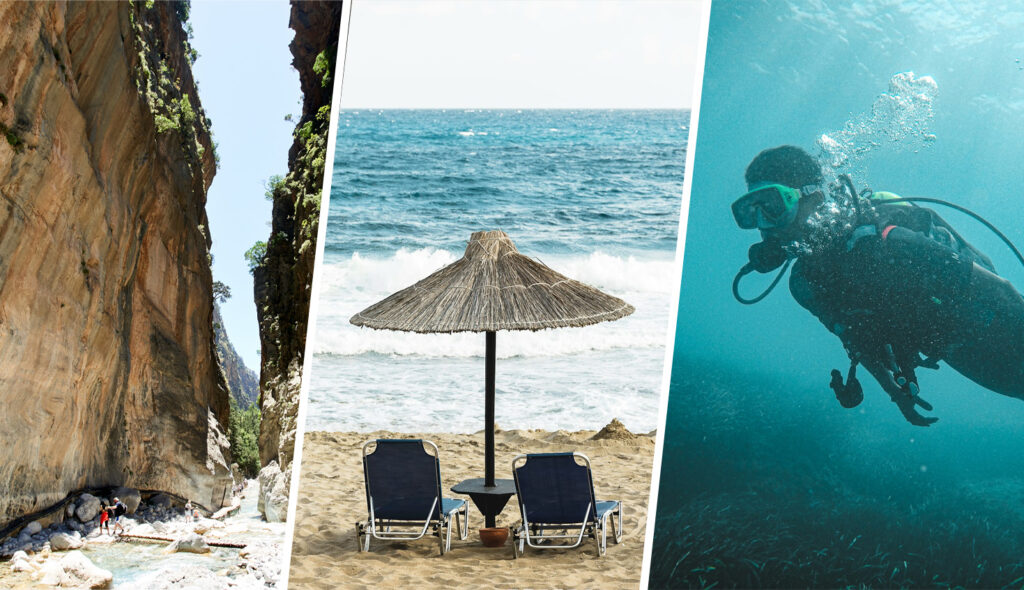
Thrilling Adventures
Crete is Greece’s largest island and a true paradise for adventure lovers. Its different types of terrain and clear waters make it a magical place. Its rich cultural heritage provides the basis for exciting activities to satisfy even the most fearless travellers. If you are an enthusiast of water sports or a lover of hiking and rock climbing, visit Crete to awaken your inner desire to have fun.
Scuba diving, snorkelling, windsurfing, and other water sports are also available along the breathtaking coasts of this island. As you go deep in the waters, you will see how colourful coral reefs look like or old sunken ships lying under. While windsurfing, use the wind to glide yourself through waves. The mountainous terrain in Crete offers many options for people who want some heart-pumping experience, such as hiking, rock climbing and mountain biking on difficult paths.
Furthermore, numerous walking trails on the island run across magnificent landscapes, from rugged gorges to lush green valleys. Give yourself a challenge by going through one of Europe’s longest and most fascinating canyons, Samaria Gorge, or take an adventure trip into this historical place full of history and culture.
Visit Crete, for it accommodates various adventurous activities surrounded by beautiful scenic beauty, making it appropriate for anyone seeking excitement and discovery. Grab your luggage bags as we explore mind-blowing things to do in Crete!
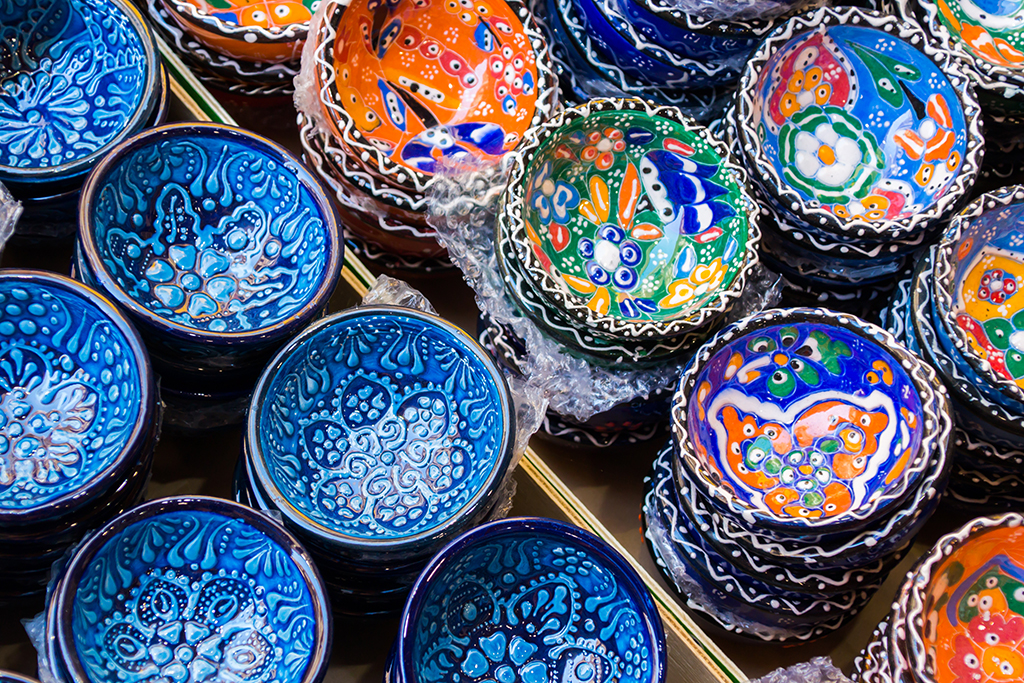
Local Culture and Arts
The captivating island of Crete presents visitors with a rich tapestry of cultural experiences. The island’s traditions are intricately interwoven into daily life, from ancient history to contemporary arts and crafts. As one explores Crete, they are submerged in a world of lively festivals, bewitching music and stunning handicrafts that reveal the island’s timeless cultural heritage.
Visit Crete during festival time, for it is a very different experience to see it alive with celebrations. During the Easter period, the streets teem with the sound of traditional music and rhythmic steps taken by folk dancers. In summer, Crete hosts many festivals that revolve around agriculture, featuring local produce, musical performances, and dance.
Also captivating are its musical traditions, including the Lyra and Laouto (a type of lute) played everywhere on the Island. These instruments are essential in Cretan traditional music, providing mesmerising background sounds accompanying dancers’ rhythmic movements during festive days.
This aspect is equally admirable on the island regarding Crete’s handmade artefacts, whose production cuts across varied dimensions. The talented artisans make different kinds of beautiful goods ranging from superior leather works to delicate potteries, from well-woven fabrics to superb jewellery that allude to its residents’ exceptional competencies and inventiveness.
While visiting Crete, you will be able to learn about its local culture and support its art pieces, which complete its identity. By engaging oneself with such vivid customs, you can discover what makes this fascinating destination unique.
Tricks and Tips for Planning Your Crete Itinerary
When planning to visit Crete, organising your Crete itinerary is very crucial for ensuring a seamless experience filled with memories throughout your stay at that new place. For everything from determining the transport, accommodation, and best period to visiting Crete, this Crete travel guide will provide you with all the information needed to construct an ideal experience.
Plan your holiday to Crete with these tips and tricks for a memorable trip to Cretan beauty and rich cultural heritage.
Why Visit Crete?
A gem among Greek islands, Crete offers everything from natural beauty to heritage and mouthwatering cuisine. The rugged mountainscape is complimented by pristine beaches with turquoise waters, making it an ultimate destination for nature enthusiasts who also enjoy history or good food.
Determining the Perfect Season
It depends on your preferences as to when to visit Crete. The summer holidays of June- August feature warm sunny days perfect for beach hopping and other outdoor activities. But spring (April- May), autumn (September- October), and shoulder seasons can be pleasant, too, with few tourists and mild temperatures.
Crafting Your Crete Itinerary
While working out your draft plan of Crete Itinerary, consider that each part of the island has its attractions and experiences waiting for you. So whether visiting the bustling city of Heraklion or calm coastal towns, ensure that must-see sites are covered in your schedule, allowing enough time for spontaneous day trips from Crete.
Transportation and Accommodation
There are buses for transportation within Crete. Taxis can be found almost everywhere, and there are facilities for hiring cars, which makes getting around quite easy. When it comes to accommodation, there are a variety of them, ranging from traditional Cretan villas to modern hotels that suit different tastes or budgets.
Contact TraveloDeal to book your unique Crete Holidays 2025 from the UK.
Frequently Asked Questions (FAQs)
Do I need to have a visa for travelling to Crete?
Being part of Greece and a member of the European Union, UK citizens don’t need a visa when visiting Crete on trips lasting less than 90 days. Have your passport ready.
What’s the local currency used in Crete?
Euro (€) is accepted in Crete, while credit and debit cards are widely used and suitable for carrying cash.
Which language is spoken mainly in Crete?
Greek is the primary language, but English is also commonly spoken, especially in tourist spots and hotels.
What are some top things people can do in Crete?
Visiting ancient Minoan ruins, hiking through Samaria Gorge, and spending time near the coastlines of charming towns are some of the enriching experiences you can have. You can also go for various delicious local cuisines accompanied by wine, which should be noticed while visiting Crete.